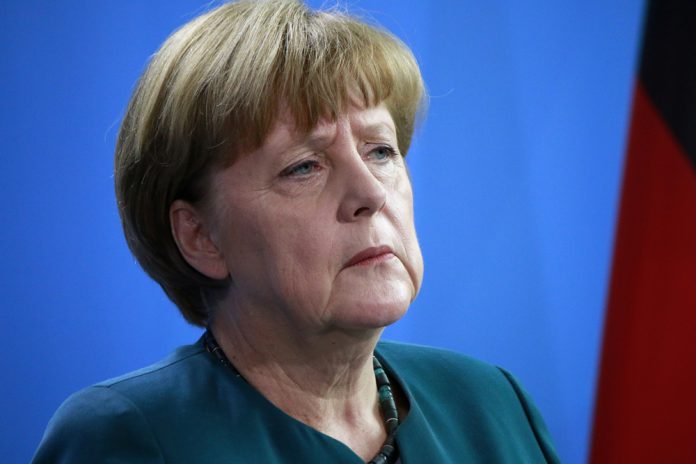Recent problems with German Deutsche Bank (ETR:DBK) are the latest of a series of concerns for Chancellor Angela Merkel, potentially jeopardizing the future of her leadership.
In 2015, Angela Merkel was named Time Magazine’s ‘Person of the year‘. Her compassionate response to the refugee crisis, alongside Germany’s continued economic dominance, garnered her the title ‘Chancellor of the Free World’.
Her political star remained burning brightly in Europe with seemingly no sight of extinction. Almost a year on however, and her leadership’s future looks somewhat gloomier.

So what has changed?
Disappointment in the polls
Merkel’s welcoming response to Syrian refugees fleeing the brutal Syrian war was initially commended by the international community, as the world looked to Germany as a beacon of tolerance and inclusion. However, pressure continues to mount on European governments to formulate a concrete solution to immigration. The refugee crisis continues to paralyse Europe, giving rise to populist sentiment and far-right ideologies across the continent. An increased sense of insecurity in Europe, following various terrorist incidents, have given far-right European parties further ammunition.
Earlier this year, Merkel was delivered a devastating blow during local elections which saw the anti-immigrant alternative for Germany (AFD) win the highest share of the vote for a far-right party since the Second World War. The AFD secured 14 percent of the vote in Berlin, a worrying development for Merkel’s party – The Christian Democratic Union Party (CDU).

In addition, a recent nationwide German poll revealed that just 45 percent of respondents were satisfied with Merkel’s performance. This is the lowest approval number recorded for her leadership, since 2011.
However, Merkel has been the Chancellor of Germany since 2005 and the leader of the CDU since 2000 – and intends to stand for re-election in 2017.
Deutsche Bank
Financial chaos surrounding Deutsche Bank is another point of contention for Merkel’s leadership. The German bank is in a crisis, following a plunge in shares after receiving a $14 billion fine for their involvement with missold mortgage-backed securities.
Today, Deutsche Bank shares plunged even further to €10 a share earlier this morning, an unprecedented drop for the Bank. Deutsche Bank’s chief, John Cryan reassured that “this bank is strong” and that “hefty speculation” was causing the share price fall.
For the moment, any form of intervention from the Government seems unlikely, as any move towards initiating a bail-out would prove contradictory with much of Merkel’s rhetoric. Eckhardt Rehberg, the parliamentary budget spokesperson for Chancellor Merkel’s party, told Reuters: “At the present time, I would rule out any capital help. That would not be the right way to go.” Similarly, such a decision would also prove considerably unpopular with the German public.
Arguably, Deutsche Bank’s continued woes will have serious consequences on the German economy, as well as a ripple effect on market confidence in other European banks. Whilst it may be too early to write Merkel’s political obituary, how her Government choose to act in this latest crisis could have serious ramifications on the future of her leadership.

